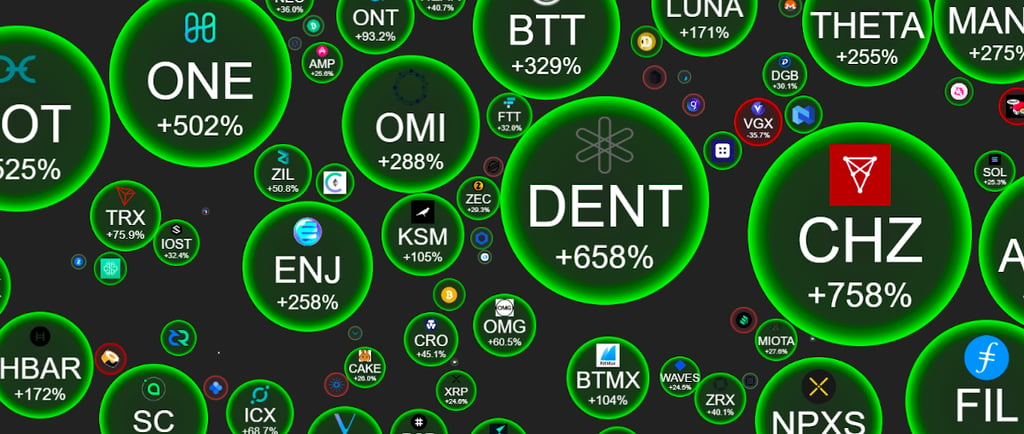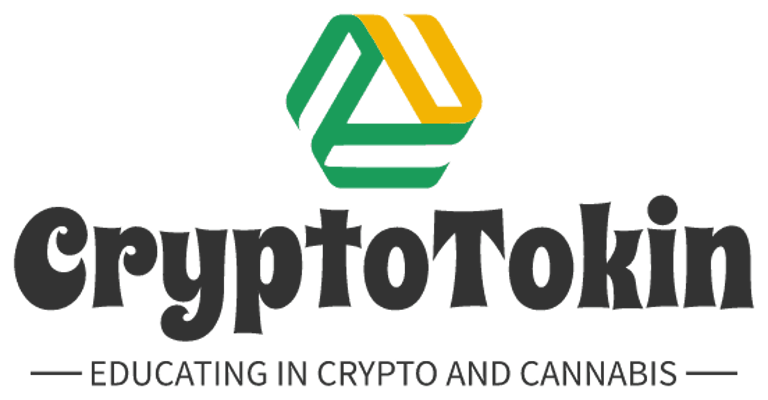
Exploring Altcoins: A Guide to Alternative Cryptocurrencies
This article discusses the concepts of "altcoins", including information pertaining to chains, categories, market capitalization, exchanges, and resources.
INTRODUCTION TO CRYPTO
CryptoTokin
4 min read


Introduction: In the ever-expanding universe of cryptocurrencies, Altcoins play a crucial role in diversifying investment portfolios, exploring innovative technologies, and shaping the future of finance. In this extensive guide, we will delve into the world of Altcoins, covering concepts such as chains, categories, market capitalization, exchanges, and resources. Whether you're a newcomer venturing into the world of crypto or an experienced trader seeking deeper insights, this article aims to provide a comprehensive understanding of Altcoins and the importance of conducting thorough research, exercising caution, and staying informed in the altcoin ecosystems.
Understanding Altcoins: Altcoins, short for alternative coins, refer to any cryptocurrency other than Bitcoin (BTC), which was the first cryptocurrency to gain widespread adoption. Altcoins encompass a diverse range of digital assets, each with its unique features, use cases, and underlying technologies. While Bitcoin remains the dominant cryptocurrency by market capitalization and popularity, Altcoins offer opportunities for innovation, experimentation, and investment in the rapidly evolving crypto landscape.
Concepts of Chains: Altcoins operate on their own blockchain networks, which are decentralized ledgers that record transactions and store data in a secure and immutable manner. Blockchain technology serves as the foundation for Altcoins, enabling peer-to-peer transactions, smart contracts, and decentralized applications (DApps). Each Altcoin may have its own blockchain architecture, consensus mechanism, and governance model, contributing to the diversity and complexity of the altcoin ecosystem.
Categories of Altcoins: Altcoins can be categorized based on various criteria, including their underlying technology, purpose, and utility. Some common categories of Altcoins include:
Utility Tokens: Utility tokens are Altcoins that provide access to a specific product or service within a blockchain-based ecosystem. Examples include Ethereum's Ether (ETH), which is used to pay for transaction fees and deploy smart contracts on the Ethereum network, and Binance Coin (BNB), which offers discounts on trading fees on the Binance exchange.
Platform Tokens: Platform tokens are Altcoins that serve as the native currency of a blockchain platform or protocol, enabling developers to build and deploy decentralized applications (DApps) and smart contracts. Examples include EOS, which powers the EOSIO platform, and Cardano's ADA, which fuels the Cardano blockchain.
Privacy Coins: Privacy coins are Altcoins that prioritize user privacy and anonymity by implementing advanced cryptographic techniques such as zero-knowledge proofs and ring signatures. Examples include Monero (XMR), Zcash (ZEC), and Dash (DASH), which offer enhanced privacy features compared to transparent blockchains like Bitcoin.
Stablecoins: Stablecoins are Altcoins that are pegged to stable assets such as fiat currencies (e.g., USD, EUR) or commodities (e.g., gold), aiming to maintain a stable value and minimize price volatility. Examples include Tether (USDT), USD Coin (USDC), and Dai (DAI), which are widely used for trading, remittances, and hedging against crypto volatility.
Market Capitalization: Market capitalization, or market cap, refers to the total value of a cryptocurrency's circulating supply, calculated by multiplying the current price per coin by the total number of coins in circulation. Market cap serves as a key metric for assessing the size, liquidity, and relative importance of Altcoins in the crypto market. While Bitcoin dominates the cryptocurrency market in terms of market cap, Altcoins collectively represent a significant portion of the overall market capitalization, reflecting the diversity and innovation within the altcoin ecosystem.
Exchanges and Trading: Altcoins are traded on various cryptocurrency exchanges, which are online platforms that facilitate the buying, selling, and trading of digital assets. Cryptocurrency exchanges offer a wide range of Altcoin trading pairs, allowing users to exchange one Altcoin for another or trade Altcoins for fiat currencies such as USD, EUR, or JPY. Some popular cryptocurrency exchanges for Altcoin trading include Binance, Coinbase Pro, Kraken, and Bitfinex. It is essential for Altcoin traders to conduct thorough research and exercise caution when trading on exchanges, as they may be susceptible to hacking, fraud, and regulatory risks.
Resources for Altcoin Research: Conducting thorough research is essential for making informed decisions when investing in Altcoins. Several resources are available to help users analyze Altcoin projects, evaluate their potential, and stay informed about market trends and developments. Some useful resources for Altcoin research include:
Cryptocurrency Websites: Websites such as CoinMarketCap, CoinGecko, and CoinDesk provide comprehensive data, analysis, and news coverage on Altcoins, including price charts, market cap rankings, and project profiles.
Community Forums: Online forums and social media platforms such as Reddit (r/cryptocurrency), Bitcointalk, and Twitter are valuable sources of information and discussion about Altcoin projects, market trends, and investment strategies. Engaging with the crypto community can provide insights and perspectives from experienced traders and enthusiasts.
Whitepapers and Documentation: Whitepapers and project documentation offer detailed insights into the technology, features, and objectives of Altcoin projects. Reading whitepapers and technical documentation can help users understand the underlying concepts, architecture, and potential use cases of Altcoins. Have you read the Whitepaper for Bitcoin yet?
Developer Communities: Many Altcoin projects have active developer communities on platforms such as GitHub and Discord, where contributors collaborate on code development, discuss technical challenges, and propose enhancements to the project. Engaging with developer communities can provide insights into the project's development roadmap, governance model, and future plans.
Conclusion: Altcoins play a vital role in the rapidly evolving landscape of cryptocurrencies, offering opportunities for innovation, diversification, and investment beyond Bitcoin. With a diverse range of digital assets spanning various categories and technologies, Altcoins contribute to the growth, adoption, and maturation of blockchain technology. However, it is essential for participants in the altcoin ecosystems to conduct thorough research, exercise caution, and stay informed about market trends, risks, and developments. By approaching Altcoins with diligence and a willingness to learn, users can navigate the complexities of the altcoin market and harness its transformative potential in the digital economy.
